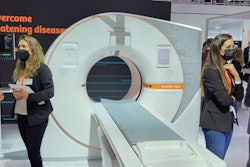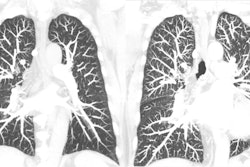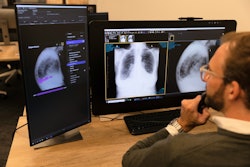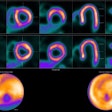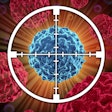Dear AuntMinnie Member,
MRI has been shown to enable fewer unnecessary biopsies in men who are at higher risk of prostate cancer. Based on the results of new research from the U.K., the modality could also potentially serve in an expanded role as an effective screening tool.
In a study involving over 300 men, the researchers found that MRI could detect clinically significant prostate cancer in patients with a prostate-specific antigen (PSA) density level lower than the current follow-up threshold of 3 ng/ml. That means that relying on PSA test alone for screening would have missed these potentially serious prostate cancer cases.
Get all the details by reading our most highly read story of the week or by visiting our MRI Community.
Staff safety during Y-90 radioembolization
Yttrium-90 (Y-90) radioembolization procedures can be dangerous to perform. Researchers from Canada recently used computer simulations to quantify radiation exposure levels to medical personnel from Y-90 contamination events and found that contamination by a tiny droplet could exceed annual skin dose limits in just seconds. As a result, all team members need to be prepared to respond quickly to these events, according to the authors.
In a fascinating story you can also find in our Molecular Imaging Community, a group from the New York City used PET to observe the pharmacokinetics of microplastics and nanoplastics in an animal study. The researchers believe that PET will also be useful for assessing the effect of these environmental pollutants in the human body.
CT AI model
AuntMinnie.com members were also very interested in our coverage of a study reporting on a deep-learning algorithm that was trained using free-text CT reports to detect -- and localize -- four types of head abnormalities in 17 regions of the brain. It could also classify intracranial hemorrhage with a high level of accuracy.
In other news we're featuring this week in the CT Community, recent research found that coronary CT angiography (CCTA) can help predict risk of major adverse cardiac events in patients with non-ST segment elevation acute coronary syndrome. Based on their result, the authors believe that CCTA could be an effective and less-invasive tool for these patients compared with other forms of intravascular imaging such as invasive coronary angiography.






